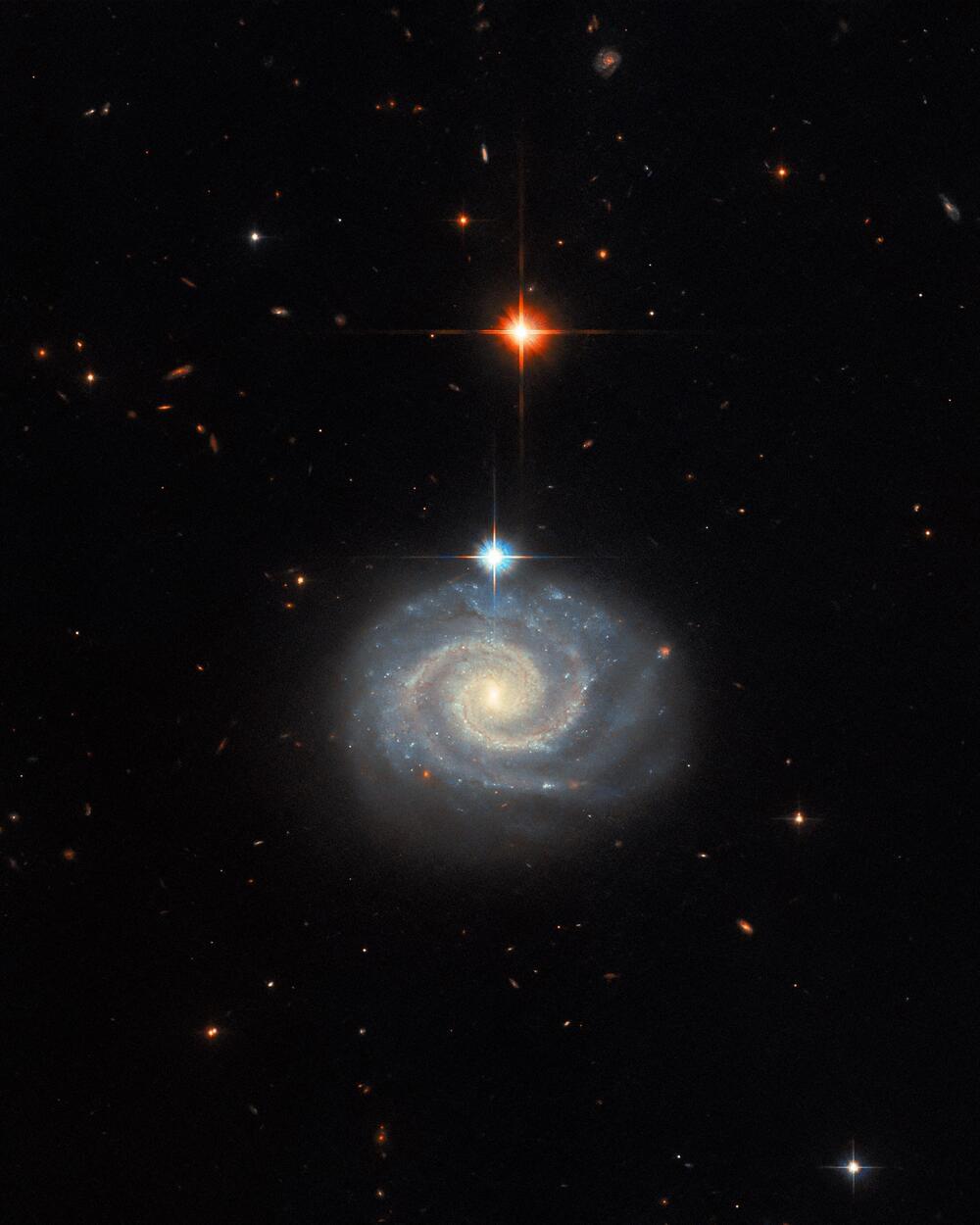This whirling image features a bright spiral galaxy known as MCG-01–24-014, which is located about 275 million light-years from Earth. In addition to being a well-defined spiral galaxy, MCG-01–24-014 has an extremely energetic core known as an active galactic nucleus (AGN) and is categorized as a Type-2 Seyfert galaxy.
Seyfert galaxies, along with quasars, host one of the most common subclasses of AGN. While the precise categorization of AGNs is nuanced, Seyfert galaxies tend to be relatively nearby and their central AGN does not outshine its host, while quasars are very distant AGNs with incredible luminosities that outshine their host galaxies.
There are further subclasses of both Seyfert galaxies and quasars. In the case of Seyfert galaxies, the predominant subcategories are Type-1 and Type-2. Astronomers distinguish them by their spectra, the pattern that results when light is split into its constituent wavelengths. The spectral lines that Type-2 Seyfert galaxies emit are associated with specific ‘forbidden’ emission lines. To understand why emitted light from a galaxy could be forbidden, it helps to understand why spectra exist in the first place.
